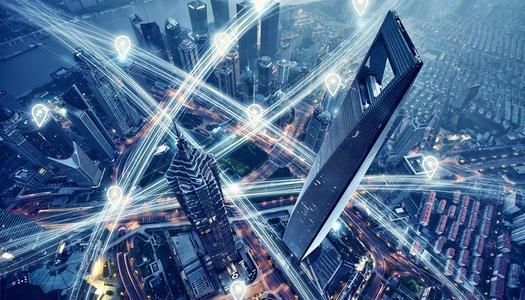BEIJING, June 3 (Xinhua) -- Imagine if this was your morning commute: hopping into your autonomous SUV, and your digital personal assistant briefs you on the latest news. After receiving real-time navigation alerts, the electric car decides to direct you to the fastest route. Right after you scan your face for entry into the office building, your car finds the nearest charging pile and starts to charge itself.
Such a scene may not be too far from reality in China thanks to government initiatives to develop "new infrastructures" that are steering the hustle and bustle of urban life into the fast lane, making it greener and smarter.
For the first time, "new infrastructure" as a phrase was mentioned in a government work report delivered in the annual national legislative session, underlining the efforts and resources the country is willing to offer to upgrade its cities.
China will develop next-generation information networks and expand 5G applications, as well as build more new energy vehicle charging facilities and promote wider use of new-energy automobiles, said the report.
The country's investment in new infrastructure is expected to reach 17.5 trillion yuan (about 2.46 trillion U.S. dollars) for the 2020-2025 period, marking an annualized growth rate of around 21.6 percent, said Xu Xianping, a former deputy head of the National Development and Reform Commission, the country's top economic planner.
Compared with traditional infrastructure, new infrastructure will attract more market entities such as internet firms to invest, said Hu Qimu, a senior researcher with China Digital Economy Institute.
China's tech giant Tencent announced it would invest 500 billion yuan in the next five years to develop new infrastructure including cloud computing, AI, blockchain, supercomputer center, quantum computing and data center across the country.
While traditional infrastructures such as roads and airports connect goods and people, the new digital infrastructures connect data, enabling the introduction of new types of products and services as well as new manufacturing systems and business models, said Tang Daosheng, senior executive vice president of Tencent.
Developing new infrastructures is a smart choice for China as it will not only counter the economic impact of COVID-19 in the short term but help the country unleash its growth potential in the long run, analysts said.
China should apply new technologies and the green development philosophy in facilitating the development of city clusters, which will drive the country's economic growth by 0.5 to 1 percentage point per year in the future decade, said Liu Shijin, an economist with the China Development Research Foundation.
The government initiatives to develop new infrastructures have created new opportunities for companies, said Hungchih Liu, vice president for Asia Pacific of engineering multinational AECOM.
To maximize on the opportunities, the company will set out to become more digital-savvy to better satisfy various demands of urban development, he said.
Liu said that the new infrastructures will bring out new public service models that help transform traditional infrastructures as well, and together they will shape the cities of tomorrow.
"The future cities will enjoy more possibilities," he said. Enditem




 A single purchase
A single purchase









